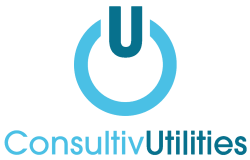
Getting to grips with your energy bills is the first step to securing a competitive deal for your business
Running a business requires a great deal of time and effort, no matter your size, scope or industry. With an ever-growing to-do list hanging over you, chances are you rarely find the time to scrutinise your business energy bills.
But understanding your bills can help you find the most competitive deal and save in the long run. Here is everything you need to know.
What are the most important aspects of your bill?
The most important aspects of your business energy bill are your standing charge, your unit rates and your contract end date.
The standing charge is the rate you pay daily for the energy supply to your business, regardless of how much energy you use. Business electricity tariffs always have a standing charge, while some business gas tariffs do not.
The unit rate is the amount you pay for each kilowatt hour (kWh) of gas and electricity you use. Having the lowest unit rate doesn’t necessarily mean you’re paying the lowest price for your energy, as it depends on how much you use. If you aren’t using much energy, a lower standing charge and a higher unit rate may be preferable.
The contract end date is, as the name suggests, the point at which your current fixed price period ends.
What else is included in your bill?
There is much more to your energy bill than these three details. You’ll also find the Climate Change Levy (CCL) – a government levy that businesses pay for every unit of non-renewable energy they use, provided they use more than an average of 33 kWh of electricity and 145 kWh of gas per day.
VAT is also present on your bill. Most companies pay the standard 20%, but you’ll only need to pay 5% if you use less than the above amounts of electricity and gas, or if you have a residential element to your business.
If your business premises use gas supplied from pipes owned by an independent gas transporter, your bill will also include IGT charges, and some energy suppliers are now providing a smart meter as standard, which may be included on your bill.
What isn’t included in your bill?
Business energy bills are just as illuminating for what they don’t show as what they do. Costs like wholesale energy – impacted by the wider market – transmission and distribution, industry charges, and government initiatives like Feed in Tariff and Renewables Obligation all contribute to the price you pay for your energy.
The long-distance transportation of energy can also lead to some energy being lost in transit, and these losses can still be included in your bills. Metering and supplier margins can also impact the final cost of your business energy bill.
Consultiv Utilities can help you make sense of your bills and pay less for your energy
When it comes to reducing your energy spending, Consultiv Utilities are on hand to ensure that your organisation takes the necessary steps.
We are here to help you make sense of your energy contracts, and find the most competitive deals for your needs. We can also help you prioritise your sustainability goals, promoting a greener future for your organisation while also saving money that can then be placed elsewhere.
Thanks to our years of expertise, we are confident that we can cut your business energy costs. We will work with you every step of the way to ensure that your utilities are both manageable and transparent.
Are you ready to improve your energy outlook? Get in touch with the team at Consultiv Utilities today.
Categories:

